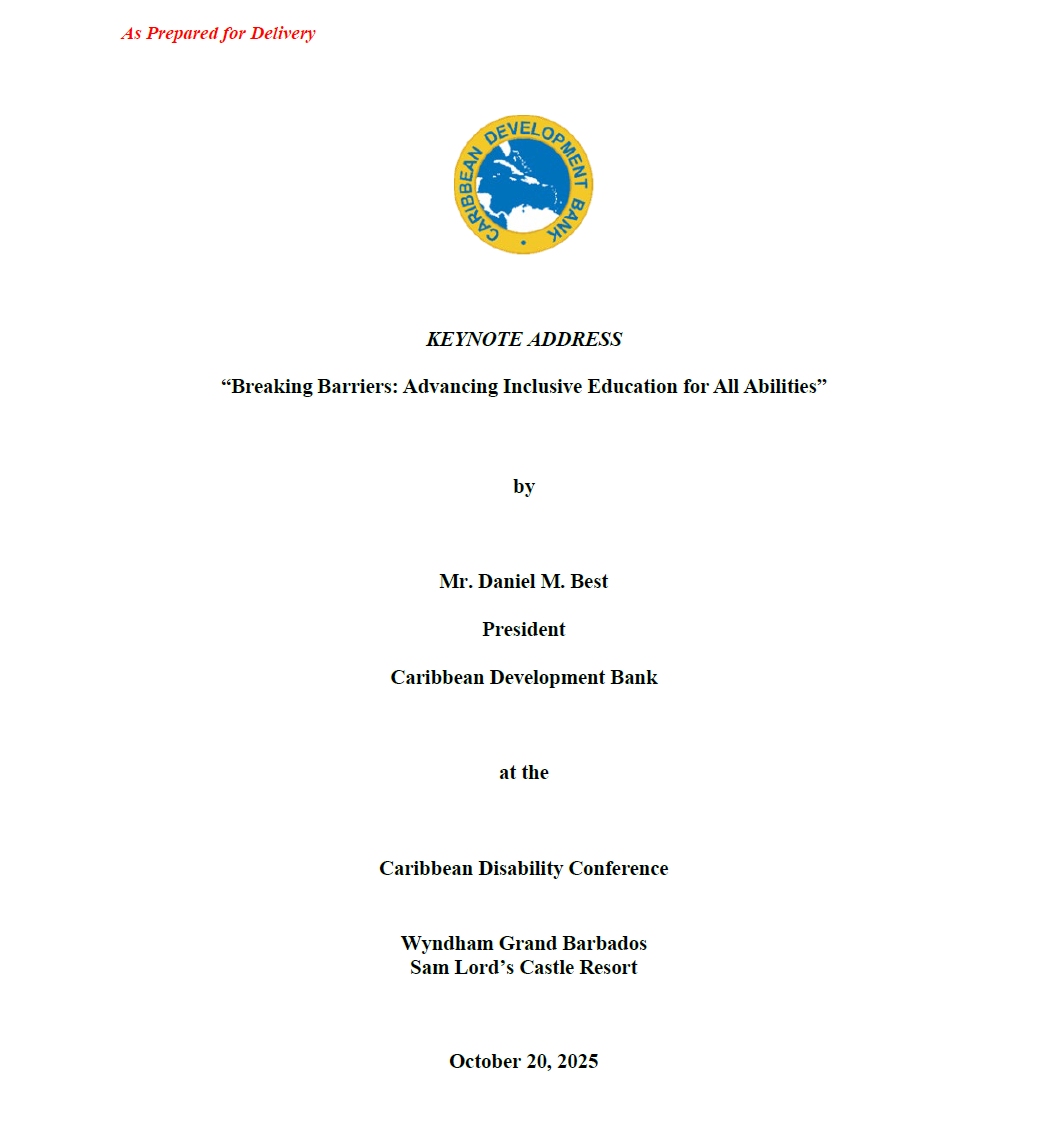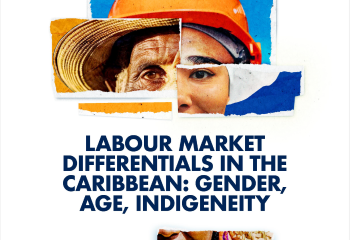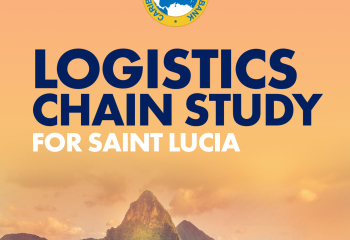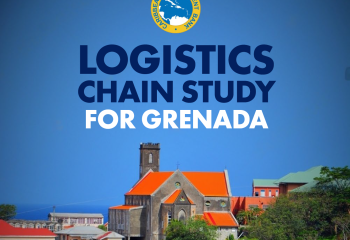Breaking Barriers: Advancing Inclusive Education for All Abilities
We live in a Region marked by a rich tapestry of cultures, languages, and traditions. Music and the spoken word reflect our diverse heritage and creative expression. As a people, we take pride in our unique identities: our cultures, ethnic backgrounds, accents, and geography, all of which contribute to a vibrant Caribbean community. Yet, within these same geographic spaces, there is a wide range of vulnerable groups whose vulnerability is based on differences in socio-economic status, gender, indigenous origin, cultural identity, ethnicity, religion, and disabilities. The Caribbean Development Bank Regional Disability Assessment Report for 2025 notes that across the Caribbean, persons with disabilities continue to face systemic barriers and social exclusion. These barriers impose significant challenges for their survival, well-being, protection and development. Despite progress in some legislative frameworks and public discourse, the practical realities, ranging from inaccessible infrastructure and inadequate social protection to limited inclusive education and employment, paint a troubling picture of unmet commitments.
Let us be clear: Disabilities span across age, sex, nationality, ethnicity, race, and geographical spaces within human societies. Persons with disabilities constitute 15% of the world’s population, including men, women, girls, boys, young persons, older persons and adults. Neither race, color, religious belief, creed or political persuasion is excluded from the population of persons with disabilities. Within our own Caribbean societies, persons with disabilities are represented within every population cohort, settlement, community, and socio-economic status. They include persons who have long-term physical, mental, intellectual or sensory impairments which in interaction with various barriers may hinder their full and effective participation in society. Disability is therefore heterogeneous, and it intersects with other vulnerabilities like urban/rural location, age cohort, indigenous identity, race and gender. I hasten to add that this is a group anyone can join, often without warning. Think about it: all it takes is one unexpected accident or diagnosis, and life can change in an instant. Disability isn’t a distant reality for others; it’s a possibility for any one of us. Recognising this truth is the first step toward building a more inclusive and compassionate society.
Persons with disabilities share similar hopes, dreams and aspirations for their well-being and a shared prosperity… just as everyone. Parents and caregivers of persons with disabilities, just as you and I, have high aspirations for the health, education, careers, and quality of life for their children. Nonetheless, persons with disabilities are faced with societal attitudes of discrimination, stereotypes, and barriers to achieve their dreams. The Caribbean Development Bank Regional Disability Assessment Report for 2025 states that persons with disabilities are faced with harsh realities of voicelessness, invisibility, neglect, isolation, prejudice and abuse. Moreover, families and caregivers are confronted with elevated levels of emotional strain and mental health challenges as they seek access to basic services, and opportunities for their children, spouses, parents, relatives, friends, neighbors, and/or acquaintances, who are persons with disabilities. The Caribbean Development Bank Regional Disability Assessment Report for 2025 contends that disability-inclusive development is not only a human rights issue but a critical development priority.
What then are the root causes of these barriers and how do we overcome?
Breaking Barriers
The 2024 Caribbean Disability Conference Report outlines cogently, “barriers to inclusion are multifaceted and often deeply entrenched in societal, institutional, and cultural structures. They include systemic inequities based on race, gender, disability, socioeconomic status, or age; physical and technological inaccessibility.
We stand today to declare that the Caribbean Development Bank is in the business of breaking barriers that contribute to the unfulfilled development needs of all vulnerable populations, including persons with disabilities. We affirm that persons with disabilities must enjoy the rights, dignity, respect and access to opportunities as citizens of our independent nations. They possess equal rights and fundamental freedoms to participate fully in all aspects of life, and to express their views freely on matters affecting them. Additionally, persons with disabilities have the right to security and protection against stereotypes, prejudices and harmful practices just as other citizens of our nation and Region. The reality is that persons with disabilities are no different or lesser human beings and citizens than you and I. The task then of “breaking barriers” begins with the commitment to create a more equitable society where persons with disabilities are treated with dignity and respect and with increased voice and agency. There is need for greater levels of inclusion of persons with disabilities in all spheres of life and the recognition that these individuals can make a positive and meaningful contribution to society.
One of the significant themes which emerged from the Caribbean Development Bank Regional Disability Assessment Report for 2025 was the expression of an empowered community of persons with disabilities, “A Disability is not Inability”. This theme encapsulates the aspirations of persons with disabilities in the Region who seek not charity or sympathy, but equal opportunity and full participation in society. Their voices urge governments, institutions, and citizens to recognise their strengths and capabilities —and to act with intention to dismantle systemic barriers that perpetuate marginaliation. Remember the voices of persons with disabilities, “A Disability is NOT Inability!
Advancing Inclusive Education For All Abilities
We have seen that our Region is characterised by differences and diversity, therefore, the need for advancing inclusive education is paramount. CDB has developed with all education stakeholders a Model Special Education Needs and Inclusive Education Policy and Strategy. The CDB Model SEND Policy (2024) outlines that advancing inclusivity means transforming education systems from traditional general education to inclusive practices that account for differences and diversity in the classroom. It is widely recognised that there are groups of learners within our Region who, due to their situational characteristics and circumstances, are likely to be excluded from quality educational provisions, and are therefore at-risk. The CDB, as the indigenous regional development bank, is committed to inclusive education.
The CDB Model SEND Policy (2024) summarises succinctly the CDB’s vision, policy goals and strategy for an inclusive educational system that is accountable, transparent, inclusive, and accessible to ensure optimal benefits for all learners. Ladies and gentlemen, the CDB will continue to provide development finances for early identification and intervention; curricular adaptations and modifications, and appropriate infrastructure for persons with special needs. We will also invest in the provision of suitably trained human resources and active stakeholder engagement and involvement. A QR Code is available for download of the CDB Model SEND Policy and Strategy (2024).
CDB has demonstrated its ongoing commitment and investment opportunities to the Caribbean Region’s growing communities of persons with disabilities. CDB, over the past five years, has identified the need and mobilised resources to enhance the policy and technical capacity of BMCs, for increased dignity, agency, and opportunities to contribute to society. The CDB Disability Assessment Reports and Policy Briefs for Grenada, Jamaica, Saint Lucia and Trinidad and Tobago are a testimony to the Bank’s commitment. In addition, targeted efforts have been undertaken to enhance disability inclusion awareness across our infrastructure portfolio. A major outcome of this initiative has been the development of the Disability Inclusion Checklist, designed for use by CDB’s Project Implementation Units, Consultants, and Contractors in consultation with Persons with Disabilities, as well as the Persons with Disabilities User Assessment Tool, both of which aim to strengthen inclusive infrastructure practices. Today, I amalso pleased to share CDB’s commitment to inclusive development with all National Associations for Persons with Disabilities. While these commitments and policy briefs are available on our website, we have also provided printed copies in braille to ensure accessibility for all.
In the rhythm of the legendary Robert Nester Marley, which emphasises the need to end discrimination and achieve equality for all, CDB pledges its support to a transformative vision aimed at breaking barriers: advancing inclusive education for all abilities. CDB pledges its commitment to continue to provide development financing, technical support, and partnerships that advances access to equitable, quality and inclusive education.
In conclusion, the vision of inclusive societies and institutions—where the rights, dignity, and well-being of persons with disabilities are fully realised—is no less revolutionary than Bob Marley’s rallying cry against racial injustice. So, the next time we’re “jammin” or “skanking” to Marley’s pulsating rhythms, let us remember: our mission to break barriers and champion inclusive education for all abilities is a movement just as powerful, just as transformative, and just as vital to human development. Ladies and gentlemen, inclusion is not charity, it is justice. It is not a favour—it is a right. The future we envision is not only possible, it is within reach, if we choose to act, together.
Thank you.




